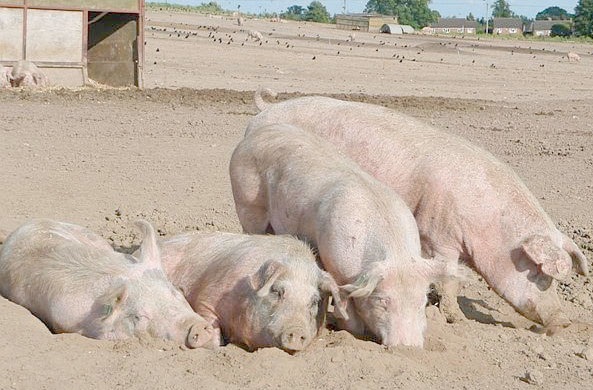UK pig farmers need growth to reduce import bill

Britain needs to see a 'gentle and gradual' renewal of its pig industry with more efficient food production, the National Pig Association has said.
Currently British farms produce only 40 per cent of Britain’s pork and pork products, the rest being imported from countries where pigs are generally produced more intensively.
Pig associations are calling for home-production to gradually increase to 50 percent. They are concerned that aggressive opposition to planning applications for new pig units is in danger of halting the pig sector’s process of gentle and gradual renewal.
"But this can only happen if pig farmers have the confidence to replace older buildings, which are less efficient than their modern counterparts and are sometimes in unsuitable locations" the NPA said.
It will also mean more environmentally-friendly farming, and it will help maintain the nation’s reputation for being one of the world’s highest-welfare pig producing countries.
The NPA is urging local residents who are concerned about any proposed development in their area to talk directly to the farmer concerned and then to trust their own judgement, rather than allow the views of pressure groups to be foisted upon them.
Unlike the key pig-producing countries on the continent, Britain has a low density of pigs, which British producers consider a prerequisite for healthy, high-welfare production.
With this in mind, NPA is critical of pressure groups that oppose applications for new pig units in this country by cherry-picking research carried out in pig-dense countries, and then claiming a relevance to Britain.
For instance, one pressure group has raised the spectre of MRSA bacteria spreading from pigs to people in Britain — but MRSA has not been detected in pigs in this country, because of the low density of animals.
Pressure groups have also sought to represent plans for ordinary farm-scale pig buildings as “mega” developments.
“We understand that some people would like to see a return to smaller-scale subsistence farming and we respect their right to express this view,” said Dr Zoe Davies, general manager of NPA.
“And we understand some groups may feel a need to create alarm in order to raise funds, but we do ask that they refrain from misrepresenting modern commercial husbandry which has much to commend it in terms of economic viability, protection of the environment and animal welfare.”








